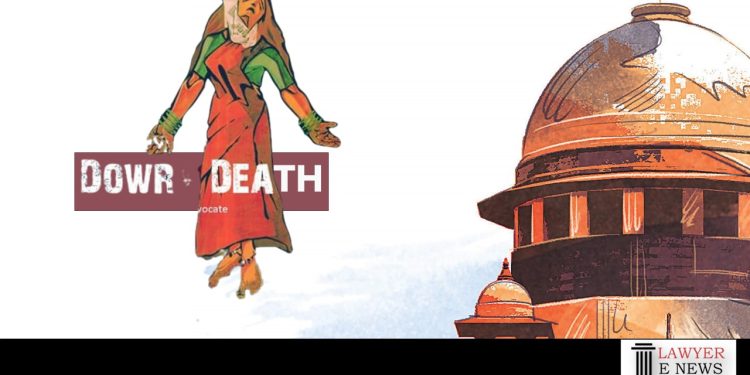Uttarakhand HC Acquits Brother-in-law and Sister-in-law in Dowry Death Case; Insufficient Evidence to Establish Demand of Dowry and Harassment

In a significant ruling, the Uttarakhand High Court acquitted the brother-in-law (Devar) and sister-in-law (Nanad) in a dowry death case due to insufficient evidence to establish the demand of dowry and harassment. The court observed that the prosecution failed to prove beyond reasonable doubt that the deceased was subjected to cruelty or harassment leading to her suicide. The judgment emphasized the necessity of establishing a reasonable nexus between the alleged harassment and the death of the deceased.
The Uttarakhand High Court acquitted the brother-in-law (Devar) and sister-in-law (Nanad) in a dowry death case. The court ruled that the prosecution failed to establish the demand of dowry and harassment beyond reasonable doubt, leading to the acquittal of the accused.
The case revolved around the death of the deceased, who was married to the appellant’s brother. The prosecution alleged that the deceased was subjected to cruelty and harassment by the accused due to dowry demands, including a scooter and a color TV. It was further claimed that an illicit relationship between the appellant and a tenant had led to confrontations and tension within the family.
During the trial, the defense argued that the allegations were false and that there were contradictions in the statements of the prosecution witnesses. The defense also highlighted the lack of external injuries on the deceased’s body and challenged the interpretation of the evidence presented by the trial court.
Upon examining the evidence, the High Court observed that the prosecution failed to provide unimpeachable evidence to support the allegations of dowry demand and harassment. The court emphasized that in dowry death cases, it is crucial to establish a clear and reasonable nexus between the alleged harassment and the death of the deceased. The court further noted that the onus is on the prosecution to prove cruelty or harassment beyond reasonable doubt.
The High Court also considered the principle of benefit of doubt, stating that in criminal cases, suspicion, no matter how strong, cannot replace the requirement of legal proof. The court highlighted the distinction between suspicion and proof, emphasizing the need for clear, cogent, and unimpeachable evidence before convicting an accused.
Based on the examination of the evidence presented in the case, the court concluded that there was insufficient material to connect the appellants with the alleged offense. The lack of positive and cogent evidence regarding the demand of dowry and harassment led the court to acquit the brother-in-law and sister-in-law. The court set aside the trial court’s judgment, acquitting the husband and tenant as well.
The judgment serves as a reminder of the importance of establishing a reasonable nexus between dowry demands, harassment, and the death of the deceased in dowry death cases. It reiterates the need for the prosecution to provide clear and unimpeachable evidence to support the allegations beyond reasonable doubt.
The Uttarakhand High Court’s acquittal of the brother-in-law and sister-in-law in the dowry death case highlights the significance of establishing a strong connection between the alleged harassment and the deceased’s death. The judgment emphasizes the need for clear, cogent, and unimpeachable evidence in proving cruelty or harassment for dowry beyond reasonable doubt. The ruling underscores the principles of justice and the rule of law in such cases, ensuring that the accused are given the benefit of doubt when insufficient evidence is presented.
Decided on: 04.05.2023
Manoj Kumar Chamoli alias Sonu and another vs State of Uttarakhand





